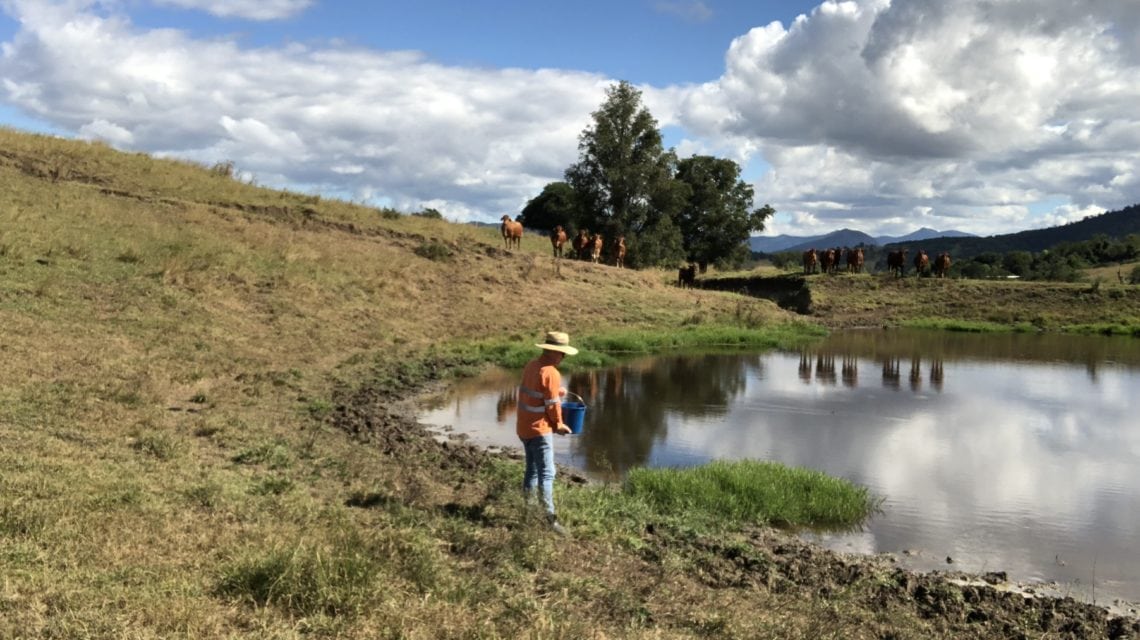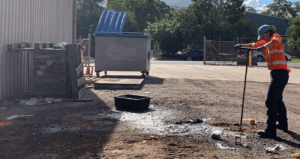The Crucial Role of Environmental Consultants in Contaminated Land Management
Environmental consultants are key in managing Australia’s growing concern over contaminated lands. Discover how their expertise extends beyond mere risk assessments to encompass the full spectrum of environmental management, ensuring safer, cleaner lands for future generations.
- Identifying Potential Contaminants: Environmental consultants are skilled in identifying potential contaminants that may pose risks to human health and the environment. This process involves an in-depth understanding of the types of contaminants typically found in various industries and historical land uses.
- Risk Assessment and Analysis: They perform detailed risk assessments to understand the extent of contamination and the potential impact on the surrounding environment. This includes assessing soil, groundwater, and air quality.
- Developing Environmental Management Plans: Creating comprehensive environmental management plans is a key part of their role. These plans outline the strategies for managing and mitigating the impacts of contaminated land.
- National Environment Protection Measures Compliance: Consultants ensure that all remediation and management efforts are in line with national environment protection measures. This adherence guarantees that the practices are not only effective but also legally compliant.
- Stakeholder Engagement and Communication: Effective management of contaminated lands involves communicating with various stakeholders, including government bodies, local communities, and industry leaders. Environmental consultants play a critical role in facilitating this dialogue.
- Technological Solutions and Innovations: The use of advanced technologies in site assessment and remediation is another area where environmental consultants bring value. They employ innovative techniques to enhance the efficiency and effectiveness of their work.
- Long-term Monitoring and Maintenance: After the initial remediation, consultants often oversee long-term monitoring and maintenance plans to ensure that the land remains safe and free of contaminants.
Environmental Consultants: Navigating the Complexities of Contaminated Land Assessment and Remediation
The assessment and remediation of contaminated lands is a complex task. Environmental consultants are adept at conducting thorough environmental site assessments to identify potential contaminants that pose risks to human health and the environment. Their evaluations often include detailed site investigations, which form the basis for developing comprehensive environmental management plans.
- Site Investigation and Environmental Site Assessments: Conducting thorough site investigations and environmental site assessments forms the foundation of their work. This includes soil sampling, groundwater monitoring, and ecological surveys.
- Customized Remediation Strategies: Based on the findings from assessments, environmental consultants develop tailored remediation strategies. These strategies are designed to address specific contaminants and site conditions.
- Project Management and Coordination: Managing and coordinating complex remediation projects is a key aspect of their role. This includes overseeing contractors, ensuring timelines are met, and budget management.
- Regulatory Compliance and Permitting: Navigating the intricate web of environmental regulations and obtaining the necessary permits is a critical function of environmental consultants. Their expertise ensures that projects comply with all legal requirements.
- Health and Safety Considerations: Prioritizing health and safety is paramount in contaminated land projects. Consultants develop plans that minimize risks to workers, the public, and the environment during the remediation process.
Comprehensive Contaminated Land Management: From Identification to Remediation
From the preliminary stages of site assessment to the final phases of remediation, environmental consultants oversee the entire contaminated land management process. They employ national environment protection guidelines to ensure that all activities are conducted in compliance with the highest standards. The goal is not just to manage but to restore contaminated sites to safe, usable conditions.
- Developing Site-Specific Solutions: Understanding that each contaminated site is unique, environmental consultants develop site-specific solutions that address the particular challenges and characteristics of each site.
- Integrating Sustainable Practices: Incorporating sustainable and green remediation practices is an increasing focus. This involves using techniques that are environmentally friendly and resource-efficient.
- Community Involvement and Public Education: Engaging with the community and educating the public about the risks and remediation processes of contaminated lands is an important aspect of comprehensive management.
- Quality Control and Assurance: Ensuring the quality and effectiveness of the remediation process is crucial. Consultants implement rigorous quality control and assurance protocols throughout the project lifecycle.
- Post-remediation Evaluation and Reporting: After remediation, environmental consultants conduct evaluations to ensure the objectives have been met. Comprehensive reporting to stakeholders and regulatory bodies is a key part of this phase.
- Future Planning and Risk Management: Consultants also focus on future planning, ensuring that once remediated, the land is used in a manner that minimizes the risk of future contamination.
- Advisory and Consultation Services: Providing ongoing advisory and consultation services to clients post-remediation, helping them make informed decisions about land use and ongoing environmental management.
Environmental Consultants: Ensuring Safe and Effective Contaminated Land Management

- Safety Protocols and Procedures: Consultants establish and enforce strict safety protocols to protect workers and the public during the remediation process. This includes the use of personal protective equipment and the implementation of emergency response procedures.
- Environmental Audits: Conducting comprehensive environmental audits is a critical aspect of their work. These audits help in identifying existing issues and potential risks associated with contaminated sites.
- Innovative Remediation Techniques: They employ innovative remediation techniques that are both effective in treating contamination and efficient in terms of time and resources. This includes bioremediation, phytoremediation, and other advanced methods.
- Sustainable Resource Management: Consultants also focus on sustainable resource management, ensuring that remediation processes do not deplete or harm other environmental resources.
- Continuous Improvement and Learning: Staying abreast of the latest developments in contaminated land management, environmental consultants constantly improve their methods and approaches, ensuring the highest standards of safety and effectiveness.
- Collaboration with Environmental Scientists: Working in tandem with environmental scientists and other experts, consultants integrate a wide range of scientific insights into their strategies.
- Health and Safety Training: Providing health and safety training to all personnel involved in contaminated land projects is another key responsibility. This ensures that everyone understands and adheres to necessary safety guidelines.
The Importance of Environmental Consultants in Protecting Human Health and the Environment
The role of environmental consultants is critical in safeguarding both human health and the environment. Their work is essential in ensuring that the remediation of contaminated sites is conducted responsibly and effectively.
- Assessment of Health Risks: Consultants carry out detailed assessments of health risks associated with contaminated sites, which is crucial in determining the necessary remediation actions.
- Monitoring Environmental Impact: Regular monitoring of the environmental impact of contaminated sites helps in understanding and mitigating any negative effects on the ecosystem.
- Community Engagement and Education: Engaging with local communities and educating them about the risks associated with contaminated lands is an important aspect of their role. This includes communicating the steps being taken to manage these risks.
- Developing Risk Management Strategies: Developing and implementing risk management strategies to prevent future contamination is a key function. This includes land use planning and establishing guidelines for future developments.
- Advocacy for Environmental Health: Environmental consultants often serve as advocates for environmental health, influencing policies and regulations to ensure the protection of human health and the environment.
- Emergency Response Planning: They are involved in emergency response planning for incidents related to contaminated sites, ensuring swift and effective actions in the event of environmental emergencies.
- Promoting Public Health Policies: Consultants collaborate with public health officials to promote policies that protect communities from the hazards of contaminated lands. This collaborative approach ensures a comprehensive strategy for environmental health and safety.
Their work not only addresses current environmental issues but also contributes to the long-term sustainability of the land.
Integral Role of Environmental Consultants in Safeguarding Our Future Through Contaminated Land Management
Environmental consultants are integral to the effective management of contaminated lands. Their expertise in risk assessments, environmental management plans, and remediation strategies ensures that contaminated sites are handled with the utmost care and professionalism, safeguarding human health and the environment. As the challenges of land contamination continue to evolve, the role of these professionals becomes increasingly vital. Their work not only resolves present-day issues but also lays the groundwork for a safer, cleaner future.


